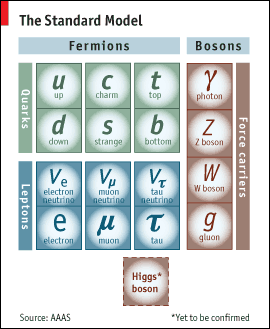I got a few emails from people who said they would rather have Obama than McCain as the guy in charge when stuff happens. So be it. These people might find it interesting to note that Obama has changed his position on the Russians in Georgia; he must have run a poll :) Or perhaps he saw that Reuters changed the meaning of his statement, and liked their version better.
I think we're all suffering from Obama fatigue. When there isn't much there anyway, over-exposing it isn't pretty. The Economist's Lexington dives deeper into these waters. "[These polls] suggest that, for all their energy and professionalism, the Democrats may have made a big strategic error: allowing the election to become a referendum on their candidate rather than a verdict on the Bush years." Yeah, no kidding, that's it in a nutshell. And Kerry lost for the same reason.
Today's post might be subtitled "Ole reads". A little known fact about me, each morning I read while I shave. The Economist is a favorite, as are Sports Illustrated, Fortune, and Bicycling; an eclectic selection. As I encounter stuff I want to tell you about, I tear out the pages. Sometimes I have to scan them, but usually they're online already and a simple Google away. So here we go...
 The other day I noted a pictorial gallery of the Large Hadron Collider, which is about to "go live". The Economist has a nice article about what scientists are hoping to learn from this device: Known and unknown unknowns. The known unknowns include the Higgs boson, which is part of the current particle zoom postulated by physicists known as the Standard Model, depicted at left. The unknown unknowns are, by definition, unknown; but they may shed light on the whole model or possibly even replace it with something simpler and more complete. That would be nice; to me, the Standard Model must be wrong because it is too complicated. It reminds me of the various mathematical attempts to explain planetary orbits before gravity was understood. The other day I noted a pictorial gallery of the Large Hadron Collider, which is about to "go live". The Economist has a nice article about what scientists are hoping to learn from this device: Known and unknown unknowns. The known unknowns include the Higgs boson, which is part of the current particle zoom postulated by physicists known as the Standard Model, depicted at left. The unknown unknowns are, by definition, unknown; but they may shed light on the whole model or possibly even replace it with something simpler and more complete. That would be nice; to me, the Standard Model must be wrong because it is too complicated. It reminds me of the various mathematical attempts to explain planetary orbits before gravity was understood. 
 You may have seen pictures of White Knight Two, the interesting plane designed by Scaled Composites for Virgin Galactic as a means of launching spacecraft into orbit. Here's an interesting article about this Knight in Shining Armour, which can possibly be used for many other things as well, such as transporting 747 engines. And interestingly Scaled Composites CEO Burt Rutan hints at possible extrapolations of the design to "much larger" airplanes. Much, much larger... You may have seen pictures of White Knight Two, the interesting plane designed by Scaled Composites for Virgin Galactic as a means of launching spacecraft into orbit. Here's an interesting article about this Knight in Shining Armour, which can possibly be used for many other things as well, such as transporting 747 engines. And interestingly Scaled Composites CEO Burt Rutan hints at possible extrapolations of the design to "much larger" airplanes. Much, much larger... 
 We've all heard about the tragedy of the commons, wherein a common resource is exploited by a few to the detriment of the many. But there's an inverse problem that can occur when resources are individually owned and can't be shared, particularly intellectual property. James Surowieki takes a look at The Permission Problem, which afflicts biotech companies developing drugs, among others... This same difficulty - getting people to cooperate for the good of all - is responsible for the prisoner's dilemma. We've all heard about the tragedy of the commons, wherein a common resource is exploited by a few to the detriment of the many. But there's an inverse problem that can occur when resources are individually owned and can't be shared, particularly intellectual property. James Surowieki takes a look at The Permission Problem, which afflicts biotech companies developing drugs, among others... This same difficulty - getting people to cooperate for the good of all - is responsible for the prisoner's dilemma. 
 Yesterday featured the Olympic Men's Road Race, but also the [in]famous Leadville 100, a mountain bike century in Colorado. This year Lance Armstrong competed, and narrowly lost to the six-time defending champion Dave Wiens; SuperHumanMag has the story, including a nice movie and pictures. Check it out! Yesterday featured the Olympic Men's Road Race, but also the [in]famous Leadville 100, a mountain bike century in Colorado. This year Lance Armstrong competed, and narrowly lost to the six-time defending champion Dave Wiens; SuperHumanMag has the story, including a nice movie and pictures. Check it out! 
| 



